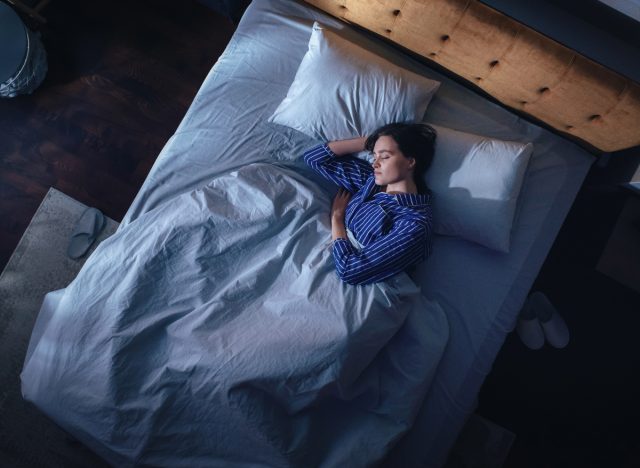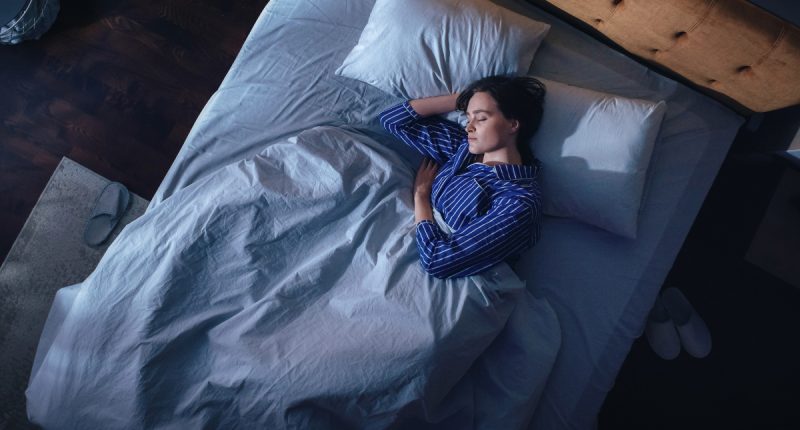
Here’s How Much Sleep You Actually Need for Optimal Health – Some nights, you may curl up under your cozy covers, and as soon as your head hits the pillow, you snooze into dreamland. On other nights, it can feel as though you’ll never fall asleep. The same goes with mornings; on some, you wake up refreshed and well-rested, and on others, not so much. This likely leaves you wondering a few things, one of them being how much sleep you need to perform your absolute best the next day. Don’t fret, because we spoke with Dorsey Standish, MS, a mechanical engineer, neuroscientist, wellness expert, and CEO of Mastermind Meditate, who shares with us how much sleep your body needs, along with the benefits of a restful night’s sleep.
How much sleep do adults need?

When it comes down to it, “every person is a bit different, but the general consensus is adults should sleep seven to nine hours per day,” Standish says. The Sleep Foundation confirms that adults aged 18 and up should aim for at least seven hours of sleep on a nightly basis. But what happens to your body when you don’t get the recommended amount of sleep?
“Since sleep is one of the three pillars of health (along with diet and exercise), it’s not surprising that lack of quality sleep negatively affects physical and mental health,” Standish tells us. “Poor quality sleep can contribute to poor cognitive performance, fatigue, mood disorders, and obesity, among many other issues, and is even correlated with a decreased lifespan.” As a matter of fact, according to research that was presented at the American College of Cardiology’s Annual Scientific Session Together With the World Congress of Cardiology, 8% of deaths due to any cause could be connected to poor sleep habits. The study also revealed that young individuals who practice good sleep habits are less likely to suffer from early mortality.
Standish also points out that when individuals are dealing with mental health issues such as stress and anxiety, or physical health issues like being unable to meet a weight loss goal, improving your Z’s is an excellent first step to deal with these challenges head-on.
What are the benefits of getting enough sleep?
There are many wonderful benefits associated with getting a good night’s rest. According to Standish, “[Good sleep] supports memory, including learning and remembering how to perform physical tasks, because memory consolidation happens during sleep.” In addition, solid Z’s aid your brain’s decision-making process, because sleep is when your brain processes information and readies itself for more. Sleep is also when your body repairs itself from cellular damage (the aftermath of ultraviolet rays, stress, etc.), “because your cells produce more proteins (aka cellular building blocks) while you are sleeping,” Standish says.
Lastly, a good night’s sleep can boost your daily performance. “[It] improves performance where it matters most,” Standish says. “A 2011 Stanford study found that when basketball players added one to four hours of extra sleep to their routines saw faster sprint outcomes and a 9% accuracy improvement in free throws! So I love to ask my clients, what would a 9% performance improvement look like in your life?”
Now that you know how much sleep you really need, along with the benefits of good Z’s, it’s time to prepare yourself for tonight! Be sure your sleeping oasis is as cool, dark, and peaceful as it can be. It’s helpful to power down any blue light devices long before you head to sleep, and make sure you’re sleeping on the right pillow and mattress. If you can’t fall asleep, consider trying guided meditation or some deep breathing exercises to calm your running mind.










